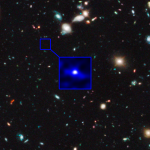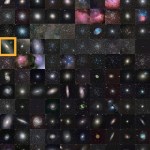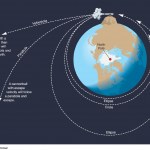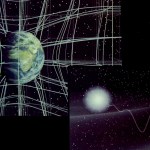expanding
“Light thinks it travels faster than anything but it is wrong. No matter how fast light travels, it finds the darkness has always got there first, and is waiting for it.” -Terry Pratchett
It’s the end of the week once again, and so let's have a go at another Ask Ethan! Perhaps inspired by a great giveaway, there have been so many great questions pouring in (and you can submit yours here for four more chances to win), but this week’s comes from our reader and winner Brad (you owe me your email address, Brad), who asks,
When an object is quoted as being 13.8 billion light years…
"We find them smaller and fainter, in constantly increasing numbers, and we know that we are reaching into space, farther and farther, until, with the faintest nebulae that can be detected with the greatest telescopes, we arrive at the frontier of the known universe." -Edwin Powell Hubble
With 110 deep-sky objects scattered throughout the heavens, the Messier Catalogue provides skywatchers across the globe with a number of spectacular targets, from nearby nebulae and clusters to spectacular, distant galaxies. Each Monday, we spotlight a new one right here.
Image credit: Rolando Ligustri,…
"Anyone who has never made a mistake has never tried anything new." -Albert Einstein
Back when Einstein first proposed his theory of General Relativity, his revolutionary picture of the Universe was met with a mix of curiosity, awe, and intense skepticism. It isn't every day that your most cherished of all physical theories -- the theory of Newtonian Gravity that had ruled the cosmos for nearly two-and-a-half centuries -- gets challenged by a newcomer.
Image credit: Brooks/Cole - Thomson publishing, 2005.
And yet, that's exactly what Einstein did when he proposed General Relativity at the…
"The mind, once expanded to the dimensions of larger ideas, never returns to its original size." -Oliver Wendell Holmes
When General Relativity supplanted Newton's work as our theory of how gravity works in the Universe, it didn't just change how we view how masses attract, it gave us a new understanding of what the questions where and when actually mean. It gave us the very fabric of spacetime.
Image credit: Christopher Vitale of http://networkologies.wordpress.com/.
What this meant is that no longer could we view objects like matter and radiation as existing in some fixed, grid…
When I think of molecules, I think of Conan O'Brien doing his skit where he plays Moleculo...
the molecular man! I don't think of astronomy, and I certainly don't think of the leftover radiation from the big bang (known as the cosmic microwave background)! But somebody over at the European Southern Observatory put these two together and made an incredibly tasty science sandwich.
See, we can measure the cosmic microwave background today, because we have photons (particles of light) coming at us in all directions at all locations, with a temperature of 2.725 Kelvin. Theoretical cosmology…
So, what's the deal with this one? startswithabang.com reader Scott Stuart asks the following question:
I was reading "The First Three Minutes" last night and came across an
interesting section about blackbody radiation and energy density. The
author states that as the universe expands, the number of photons
running around (in the CMB, for example) is unchanged, but their
wavelengths get stretched. The energy in a photon is, of course,
inversely proportional to its wavelength, so the energy content of a
photon decreases as its wavelength increases. That seems to mean that
the total energy…





